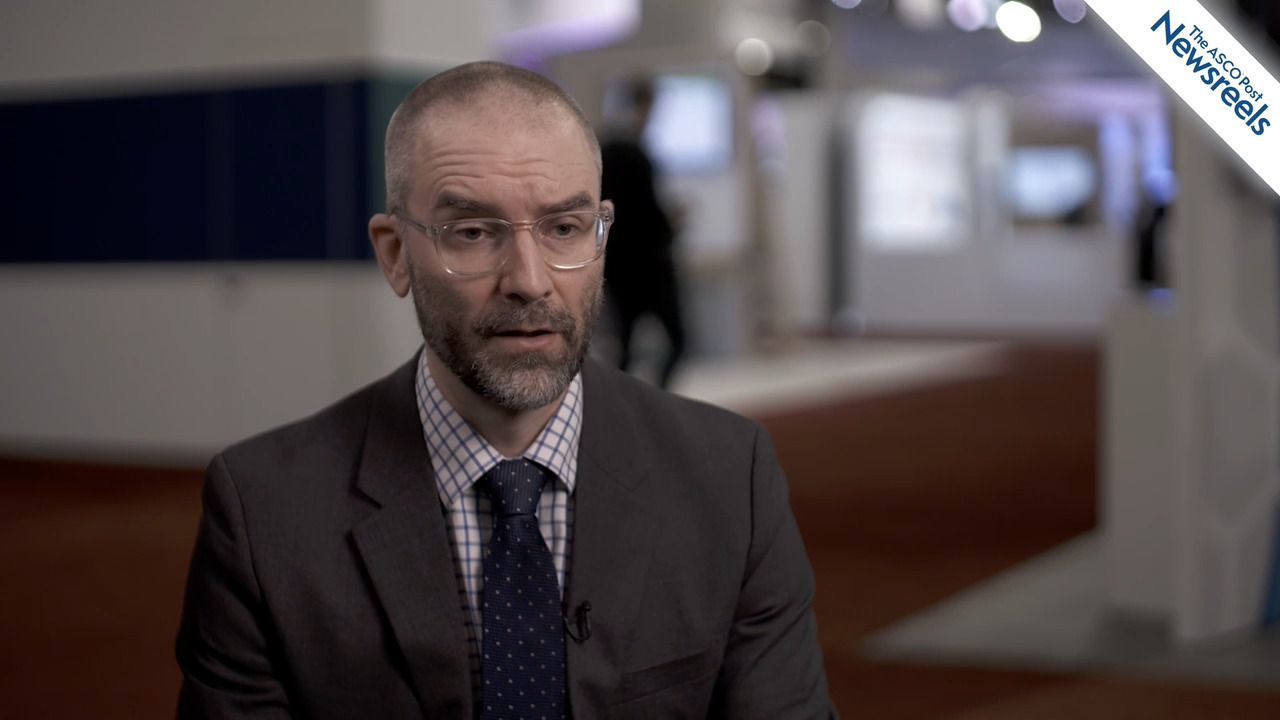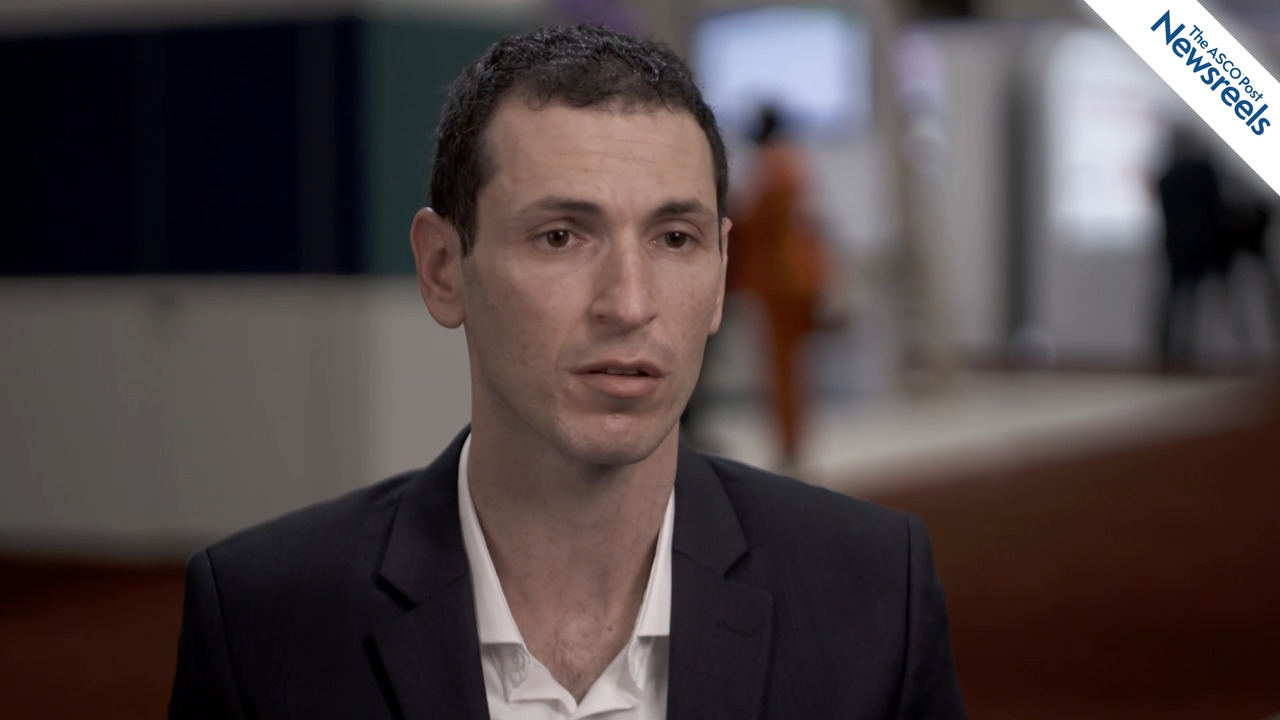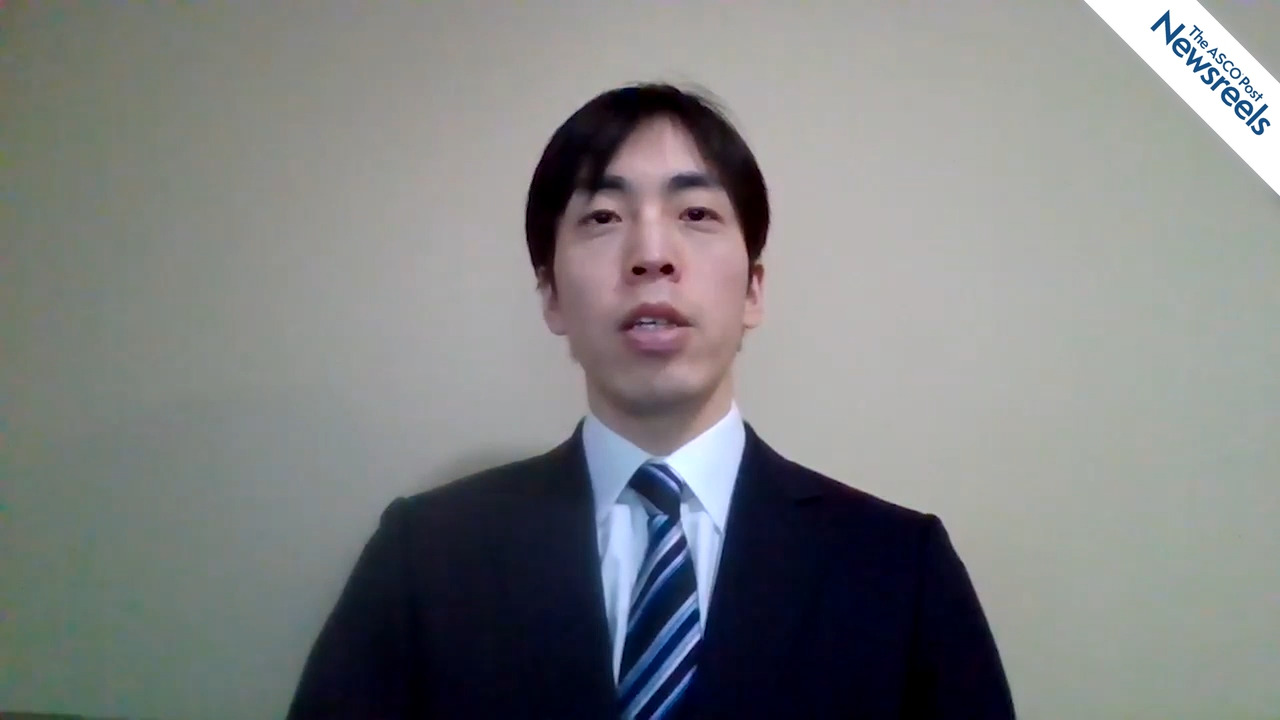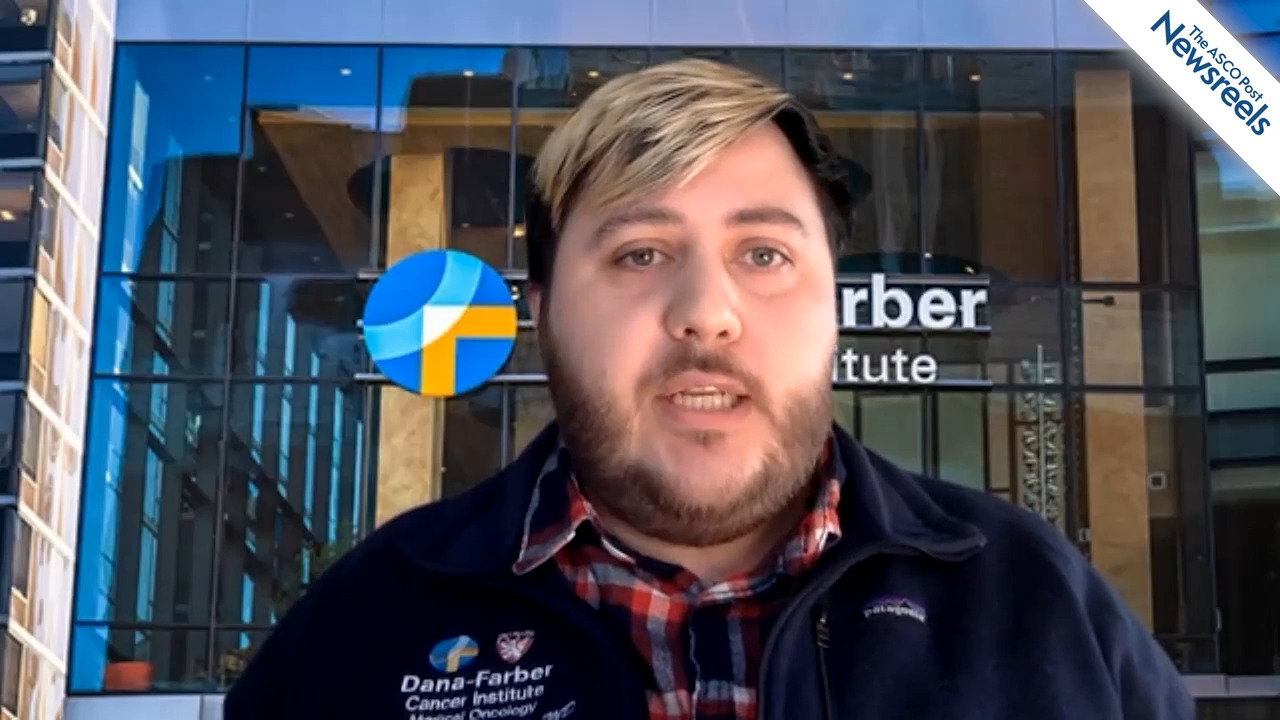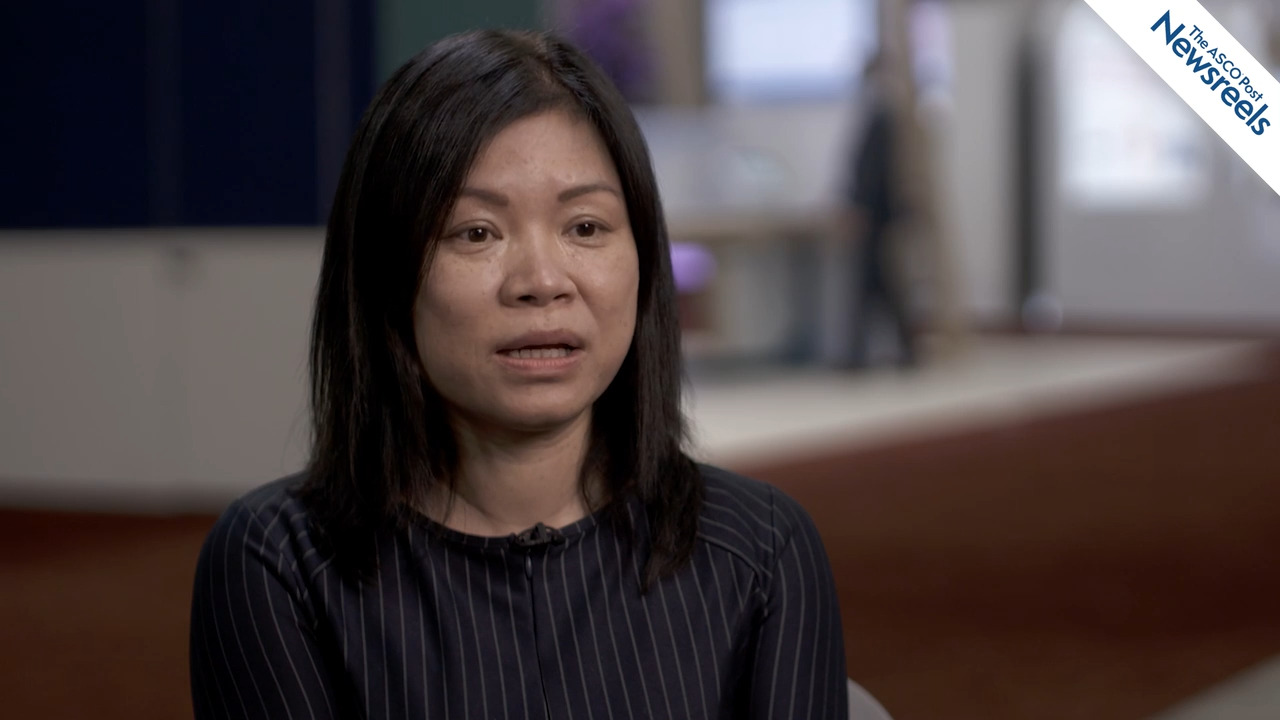Carsten Utoft Niemann, MD, PhD, on CLL: Time-Limited Venetoclax and Ibrutinib for Patients With Relapsed or Refractory Disease
2021 ASH Annual Meeting & Exposition
Carsten Utoft Niemann, MD, PhD, of Copenhagen University Hospital, discusses a primary analysis of the phase II Vision HO141 trial, which showed the feasibility of stopping and restarting ibrutinib and venetoclax in patients with relapsed or refractory chronic lymphocytic leukemia who have undetectable measurable residual disease. A favorable benefit-risk profile was demonstrated, with no new safety signals (Abstract 69).
The ASCO Post Staff
Joe Schroers-Martin, MD, of Stanford University, discusses his latest study findings, which show that follicular lymphoma driver mutations are detectable in blood and saliva years prior to a clinical diagnosis. These data build on previous work and suggest that researchers may be able to stratify people at elevated risk of clinical malignancy (Abstract 709).
The ASCO Post Staff
Roni Shouval, MD, PhD, of Memorial Sloan Kettering Cancer Center, discusses his findings, which show, for the first time, that TP53 alterations are a valuable prognostic and potentially predictive marker in patients with large B-cell lymphoma who receive CD19–CAR T-cell therapy. Gene-expression profiling suggests that TP53 alterations result in an immunosuppressive tumor microenvironment and impaired apoptosis signaling, which could lead to decreased CAR T-cell therapy efficacy (Abstract 710).
The ASCO Post Staff
Masayuki Umeda, MD, of St. Jude Children's Research Hospital, discusses his research which showed that UBTF-TD (upstream binding transcription factor-tandem duplications) define a unique subtype of acute myeloid leukemia that previously lacked a clear oncogenic driver. UBTF-TD is associated with FLT3-ITD and WT1 mutations, adolescent age, and poor outcomes. These alterations are critical for future risk-stratification for this patient cohort.
The ASCO Post Staff
Romanos Sklavenitis-Pistofidis, MD, of Dana-Farber Cancer Institute, discusses study findings on a next generation of clinical assays to assess both tumor biology and immune state, as well as common clinical biomarkers in the marrow or blood. These biomarkers may accurately predict which patients with smoldering multiple myeloma might benefit from early treatment, monitor response to immunotherapy, and improve patient outcomes (Abstract 330).
The ASCO Post Staff
L. Elizabeth Budde, MD, PhD, of City of Hope, discusses phase I/II findings that showed mosunetuzumab monotherapy induces deep and durable remissions in patients with relapsed or refractory follicular lymphoma who have received two or more prior lines of treatment, including those with double-refractory disease. Because follicular lymphoma is associated with frequent relapses and decreasing progression-free intervals with successive lines of conventional therapy, these data are encouraging (Abstract 127).
